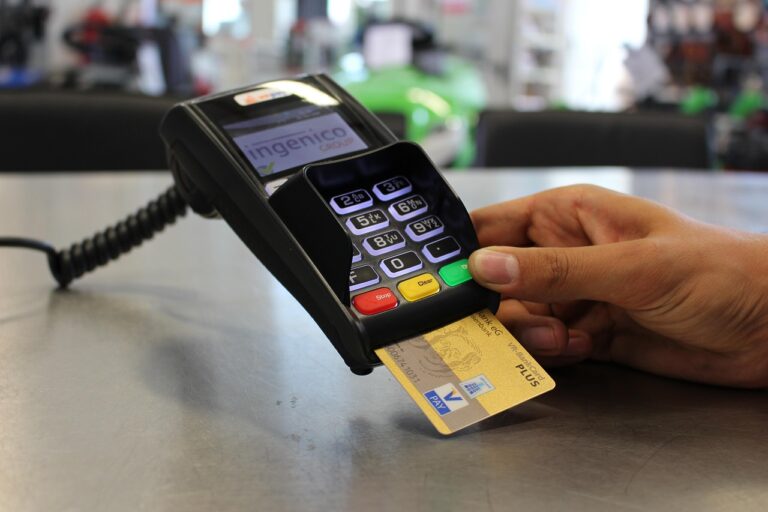Many people have a blind side to hidden fees that cost them a lot of money. They are usually hidden in the fine print and can take a significant amount of your money without you even knowing it. Whether it is banking, subscriptions, travel, or shopping, these fees are not insignificant and can amount to several hundred or even thousand dollars every year. It is important to know how hidden fees work and how to avoid paying for them more than is necessary for better financial planning. This article looks at the different types of fees that are often hidden, the impact that they have on personal budgets and how to avoid paying more than is necessary.
Where Are the Hidden Fees?
There are hidden fees in almost every financial aspect of life. One of the most affected sectors is the financial sector, which includes banking and credit cards. Many banks demand maintenance fees on checking accounts even when the customers have no knowledge of it. Moreover, ATM withdrawal fees are rather high if you withdraw money from a foreign bank machine and overdraft fees are very costly if the account balance is negative. Credit cards also have hidden charges including late payment fees, foreign transaction fees and cash advance fees.

Another major category of products with hidden costs are subscription services and memberships. Most companies have an auto-renewal policy that charges customers without their knowledge. Sometimes, charges for additional features or services are hidden in the bill and are not mentioned clearly. It may sound unreal, but there are inactivity fees as well, which means that even if you don’t use the subscription service for a long time, you will still be charged for keeping your account active.
Hidden fees can also be observed in travel related expenses. Most airlines impose baggage fees, priority boarding fees and in-flight fees. Hotels levy resort fees that are not always evident to the guest at check-out and car rental companies demand unnecessary insurance fees that are hard to avoid. This is because such costs increase the final amount to be paid without necessarily offering any value addition.
Retail and online shopping is also not exempt from hidden charges. Some shops include extra transaction fees for customers who pay with their credit cards. Some have strict return policies that include restocking fees that reduce the amount of your refund. Marketplaces also have shipping and handling charges that may only appear at the time of checkout.
The Effects of Hidden Fees on Your Financial Status
At one time, hidden fees appeared to be a small inconvenience; however, when combined, they can take a real hit on the wallet. Spending a few extra dollars every month on banking fees, unused subscriptions, or travel charges could add up to hundreds of dollars by the end of the year. It is essentially the loss of money that could have been invested or saved, or which could have been used for more meaningful expenses.
Furthermore, fees associated with credit cards or bank accounts can negatively impact credit scores if not paid off on time. Late fees and overdraft charges can damage credit reports, which can prevent users from getting better loan terms, mortgage rates, or new credit cards.
For businesses and freelancers, the hidden fees can be much worse. If a company is constantly incurring unexpected banking costs, processing fees or service charges, these are deducted from the profit, making financial planning all the more difficult.
It is not only about the saving money on hidden fees in the short term but also about reaching financial stability and reducing financial stress.
How to Identify and Avoid Hidden Fees
The best way to protect yourself from hidden fees is to be proactive and pay close attention to the terms and context of any financial agreement. Here are two essential strategies that help minimize the risk of hidden charges:
1. Always Read the Fine Print.
Fees are often hidden in the contracts, the terms of service agreements or the user policies. It is always important to read through the terms and conditions of a bank account, a credit card or even a subscription service in order to find out if there are any charges that are not obvious. It is important to disclose all fees, however, they tend to hide it in less noticeable places. It is particularly important to look for maintenance fees, transaction charges, cancellation policies and refund terms.
Some companies have free trials but you have to provide your credit card details. If the company has an auto-renewal policy, they might charge your credit card after the trial period is over. When it comes to credit cards, it is important to know the interest rates, penalty fees and annual charges. Some cards may have rewards but they have annual fees which may even nullify the benefits that one is likely to get from using the card.
2. Monitor Bank and Credit Card Statements On a Regular Basis.
This is especially important with checking accounts and credit cards since this will help in identifying unexpected charges. Sometimes, small fees are not noticed because they are small fees, but they are not taken as serious money and can amount to a lot of money over time. You can also set up transaction alerts. Many banks are now offering mobile notifications for all account activities, which enables the customer to know every charge that is being made in real time. If there is a strange fee, it is advisable to contact the bank or service provider quickly as they may return the money or waive the fee.
Smart Financial Habits to Avoid Hidden Fees
Good financial habits that can be adopted in order to avoid being surprised by unknown expenses: This article provides tips on how to prevent unnecessary expenses that are associated with certain financial decisions.
- Use Fee-Free Banking Options: There are some checking accounts that do not have monthly fees, allow for free ATM withdrawals, and come with overdraft protection. These can be more economical than similar accounts that may carry charges.
- Opt for Credit Cards with No Foreign Transaction Fees: Those who travel a lot should get cards that provide features like travel accident insurance, purchase security and cash back without imposing certain fees on the card holder. Today, many financial institutions provide fee-free or low-fee credit cards to those who monitor their accounts.
- Set Up Reminders for Subscription Renewals: It is very important to avoid being charged for services you did not ask for. If it is a service that is no longer required, not renewing it before the end of the next billing cycle will help save money. Some spending applications also monitor subscriptions and send warnings of future expenditures.
- Research Hotel and Airline Policies in Advance: This is because travelers can avoid unnecessary expenses by finding out about hotel and airline policies. For instance, some hotels do not levy resort charges on guests, while some airlines provide cheap baggage allowance for direct flights. Another area that is ripe for fee avoidance is car rental insurance: many credit cards provide coverage, thus waiving the need for extra protection.
- Negotiate Fees Whenever Possible: It is important to note that many companies including banks and telecom firms are willing to waive fees for customers who ask for it. If a charge is found on an account, it is possible to try and get your money back or the fee cancelled by contacting customer services.
These tips will help people avoid hidden fees and manage their finances more effectively.
Hidden fees are a chronic and annoying aspect of the modern financial system, and they are almost ubiquitous: in banking, subscriptions, travel, retail, and many other sectors, they are siphoning off money from personal budgets without so much as a word. While it may not be possible to avoid all of the hidden fees, knowledge and proactive financial decision-making can greatly lessen their effects. Thus, it is possible to avoid unnecessary charges and keep more of the money you earn by paying close attention to the terms and conditions of your accounts and selecting the right financial products. Over time, small changes in spending behavior, such as not using your bank’s fees and cancelling subscriptions that are not used can result in a lot of money. Not only is being aware of hidden fees a way of saving money, it is also a way of controlling finances and ensuring financial stability in the long run.


